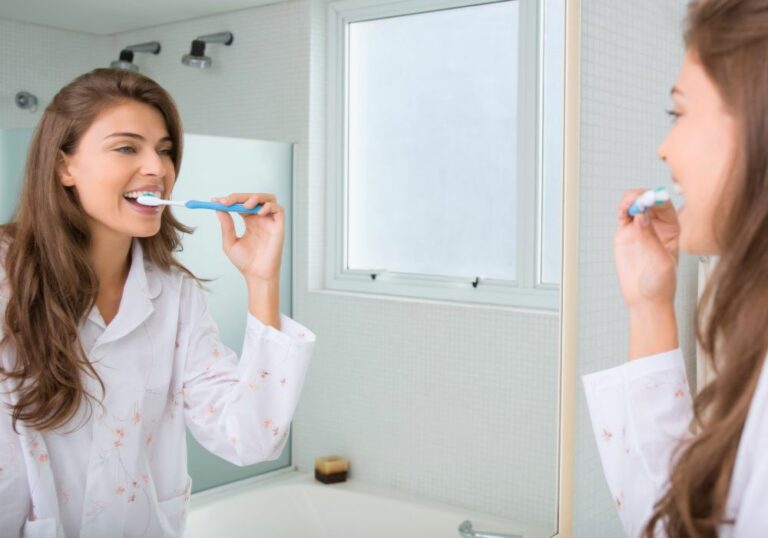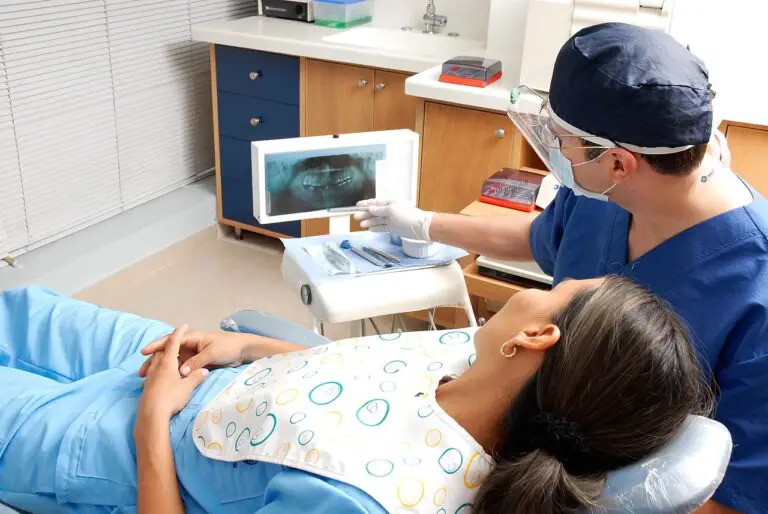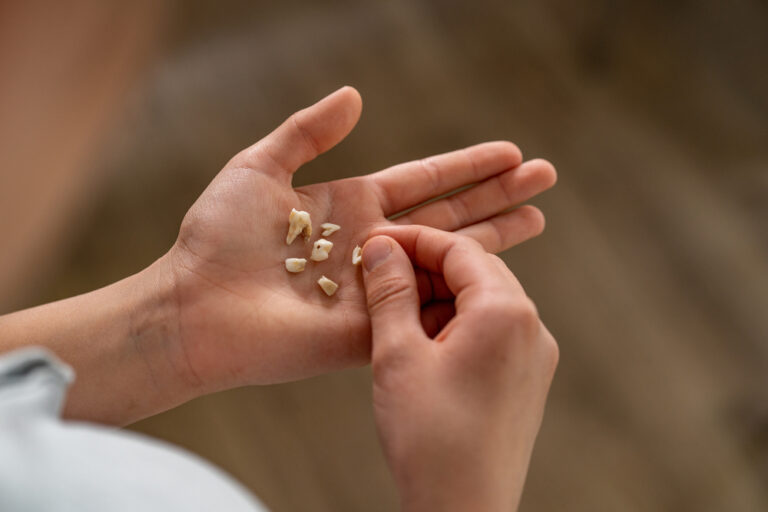Are you struggling with a tooth that has fallen off your dentures? It can be frustrating and uncomfortable to deal with a missing tooth, but luckily there are options available to fix the issue. One solution is to use a denture repair kit, which can be found at your local pharmacy or retail store. These kits contain an adhesive that can be used to glue the tooth back onto your dentures.
However, it’s important to note that not all adhesives are created equal. While some may seem like a quick fix, they can actually do more harm than good. For example, market soft glues like school glue or airplane model glue should not be used to fix dentures. Instead, it’s best to use a dental-grade resin or acrylic resin to ensure a safe and effective repair.
If you’re unsure about how to proceed with gluing your tooth back onto your dentures, it’s always best to consult with your dentist. They can provide guidance on the best course of action and ensure that your dentures are properly repaired. With the right adhesive and care, you can have your dentures looking and feeling as good as new in no time.
Understanding Dentures
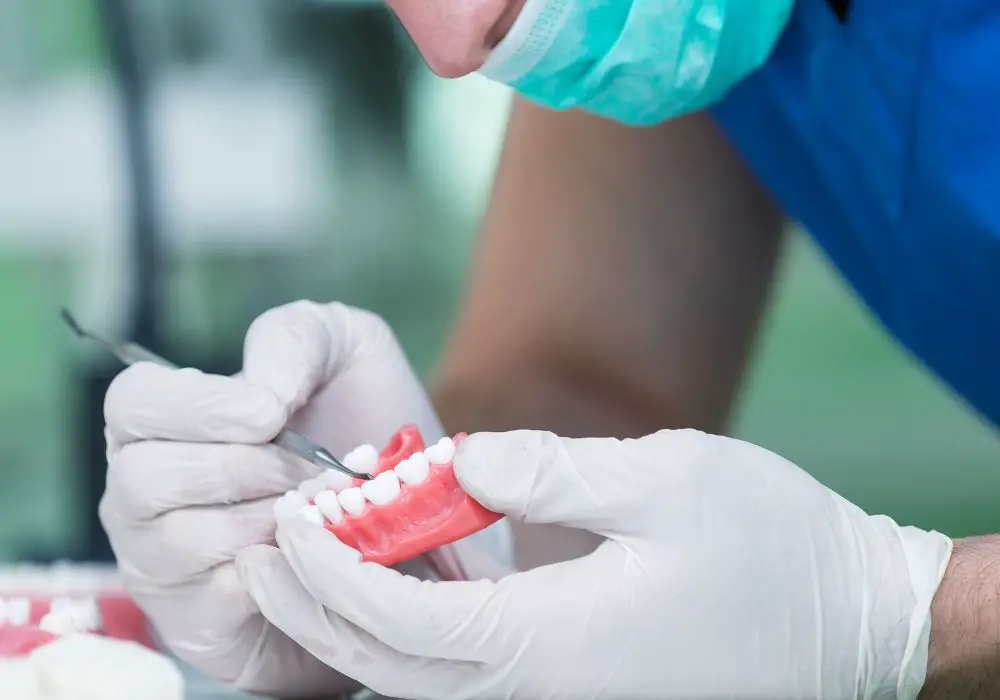
Dentures are removable prosthetic devices that are used to replace missing teeth and surrounding tissues. They are custom-made to fit the individual’s mouth and are typically made of acrylic resin or porcelain. Dentures can be full or partial, depending on the number of teeth that need to be replaced.
Full Dentures
Full dentures are used when all teeth are missing. They consist of a flesh-colored acrylic base that fits over the gums and supports a full set of artificial teeth. Full dentures can be held in place by suction or with the help of a denture adhesive.
Partial Dentures
Partial dentures are used when some natural teeth are still present. They consist of a metal or acrylic framework that attaches to the remaining teeth and supports the artificial teeth. Partial dentures can also be held in place with the help of a denture adhesive.
Caring for Dentures
Proper care of dentures is essential to maintain their longevity and effectiveness. Here are some tips on how to care for your dentures:
- Handle dentures carefully to avoid dropping them and causing damage.
- Clean dentures daily with a soft-bristled brush and mild soap or denture cleaner.
- Soak dentures overnight in water or a denture cleaning solution.
- Rinse dentures thoroughly before putting them back in your mouth.
- Avoid using hot water or harsh chemicals on dentures, as this can cause damage.
- Visit your dentist regularly to ensure proper fit and maintenance of your dentures.
Gluing a Tooth Back into Dentures
If a tooth becomes dislodged from your dentures, it is possible to glue it back in place. Denture adhesive can be used to reattach the tooth, or a denture repair kit can be purchased from a pharmacy or retail store. It is important to clean and dry the denture before applying the adhesive or repair kit for optimal results.
Common Causes for a Tooth Falling Out
If you have experienced a tooth falling out of your dentures, you may be wondering what caused it. Here are some common causes of tooth loss in dentures:
- Wear and Tear: Over time, the constant pressure and movement of your dentures against your gums can cause your denture teeth to wear down and eventually fall out.
- Poor Fit: If your dentures are ill-fitting, they can cause excessive pressure on certain teeth, leading to them falling out.
- Trauma: A fall or other physical trauma can cause a tooth to become dislodged from your dentures.
- Improper Cleaning: If you do not clean your dentures properly, bacteria can build up and cause gum disease, which can lead to tooth loss.
- Age: As you age, your gums and jawbone can shrink, causing your dentures to become loose and increasing the risk of tooth loss.
It is important to address the cause of your tooth loss to prevent further damage to your dentures. If you are experiencing frequent tooth loss, it may be time to schedule an appointment with your dentist to have your dentures evaluated and adjusted if necessary.
Temporary Solutions
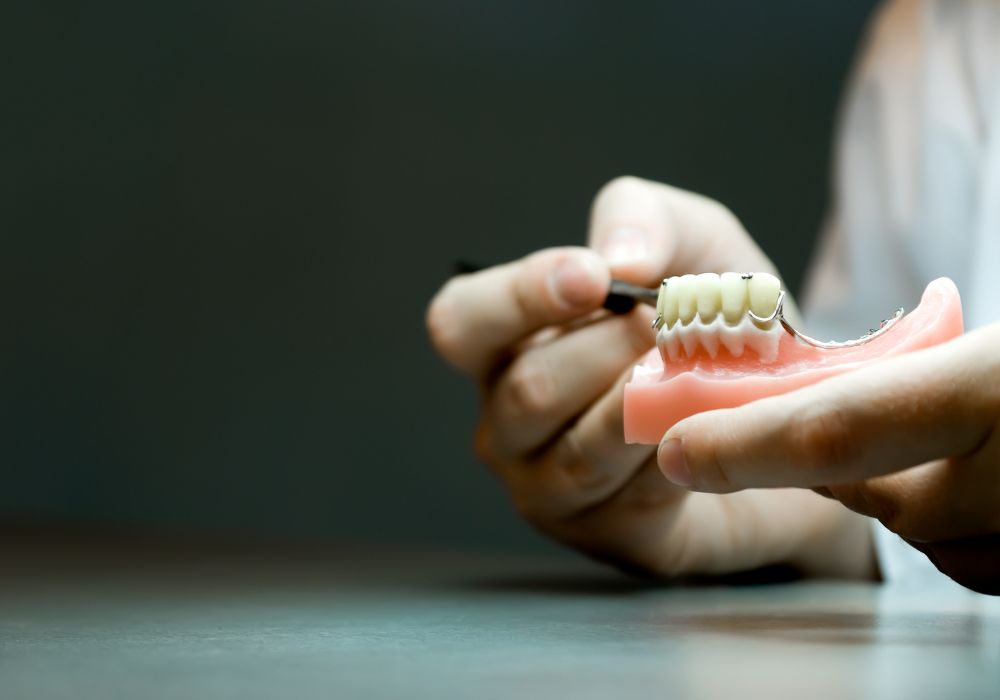
If you have a tooth that has fallen out of your dentures, there are a few temporary solutions that you can try before seeing your dentist. Here are two options that you can consider:
Dental Adhesive Products
Dental adhesive products are designed to hold dentures in place, but they can also be used to temporarily glue a tooth back onto your dentures. These products come in different forms, including paste, powder, and strips.
To use a dental adhesive product, follow these steps:
- Clean the tooth and the area around it thoroughly.
- Apply the adhesive to the tooth and the area where it will attach to the denture.
- Press the tooth firmly in place and hold it for a few minutes to allow the adhesive to dry.
It’s important to note that dental adhesive products are only meant to be used as a temporary solution. You should still see your dentist as soon as possible to have the tooth properly reattached to your dentures.
Emergency Denture Repair Kits
Emergency denture repair kits are designed to provide a quick fix for broken dentures, but they can also be used to temporarily reattach a tooth to your dentures. These kits usually contain a bonding agent, a putty-like material, and a mixing bowl.
To use an emergency denture repair kit, follow these steps:
- Clean the tooth and the area around it thoroughly.
- Mix the bonding agent and the putty-like material together according to the instructions.
- Apply the mixture to the tooth and the area where it will attach to the denture.
- Press the tooth firmly in place and hold it for a few minutes to allow the mixture to dry.
Like dental adhesive products, emergency denture repair kits are only meant to be used as a temporary solution. You should still see your dentist as soon as possible to have the tooth properly reattached to your dentures.
Remember, these temporary solutions are not meant to be a permanent fix. You should still see your dentist as soon as possible to have the tooth properly reattached to your dentures. In the meantime, be gentle with your dentures and avoid eating hard or sticky foods that could cause further damage.
Professional Solutions
If you’re not comfortable repairing your dentures at home, you can always seek professional help. Here are two options to consider:
Dental Consultation
If you’re not sure what to do, or if you’re worried about damaging your dentures, you can always schedule a consultation with your dentist. During the consultation, your dentist will examine your dentures and determine the best course of action.
Your dentist may be able to repair your dentures in the office, or they may recommend sending them to a dental laboratory for repairs. In some cases, your dentist may recommend replacing your dentures altogether.
Professional Denture Repair
If your dentures are damaged, but you’re not comfortable repairing them yourself, you can always take them to a professional denture repair service. These services specialize in repairing and restoring dentures, and they have the expertise and equipment needed to make sure your dentures are repaired properly.
When choosing a denture repair service, make sure to do your research and choose a reputable provider. Ask for recommendations from your dentist or friends and family members who wear dentures. You can also check online reviews to find a provider with a good reputation.
In general, professional denture repair services offer the following benefits:
- Expertise: Professional repair technicians have years of experience repairing and restoring dentures.
- Quality Materials: They use high-quality materials to ensure your dentures are repaired properly.
- Warranty: Many professional repair services offer a warranty on their work, giving you peace of mind that your dentures will be repaired properly.
Caring for Your Dentures
Taking good care of your dentures is important for keeping them in good condition and ensuring they last as long as possible. Here are some tips for caring for your dentures:
Regular Cleaning
Cleaning your dentures regularly is important for keeping them free from bacteria and food particles. You should clean your dentures at least once a day, and after each meal if possible. To clean your dentures, use a soft-bristled brush and a denture cleaner or mild soap and water. Avoid using abrasive cleaners or brushes, as these can damage your dentures.
Proper Handling
Proper handling of your dentures is also important for keeping them in good condition. When handling your dentures, be sure to use both hands and avoid bending or twisting them. When you’re not wearing your dentures, store them in a clean, dry place, such as a denture case. Avoid exposing your dentures to extreme heat or cold, as this can cause them to warp or crack.
Routine Dental Check-Ups
Regular dental check-ups are important for ensuring your dentures fit properly and are in good condition. Your dentist can also check for any signs of oral health problems, such as gum disease or oral cancer. Be sure to schedule regular check-ups with your dentist, and let them know if you experience any discomfort or problems with your dentures.
By following these tips, you can help ensure your dentures stay in good condition and provide you with a comfortable, functional smile.
Preventing Future Damage
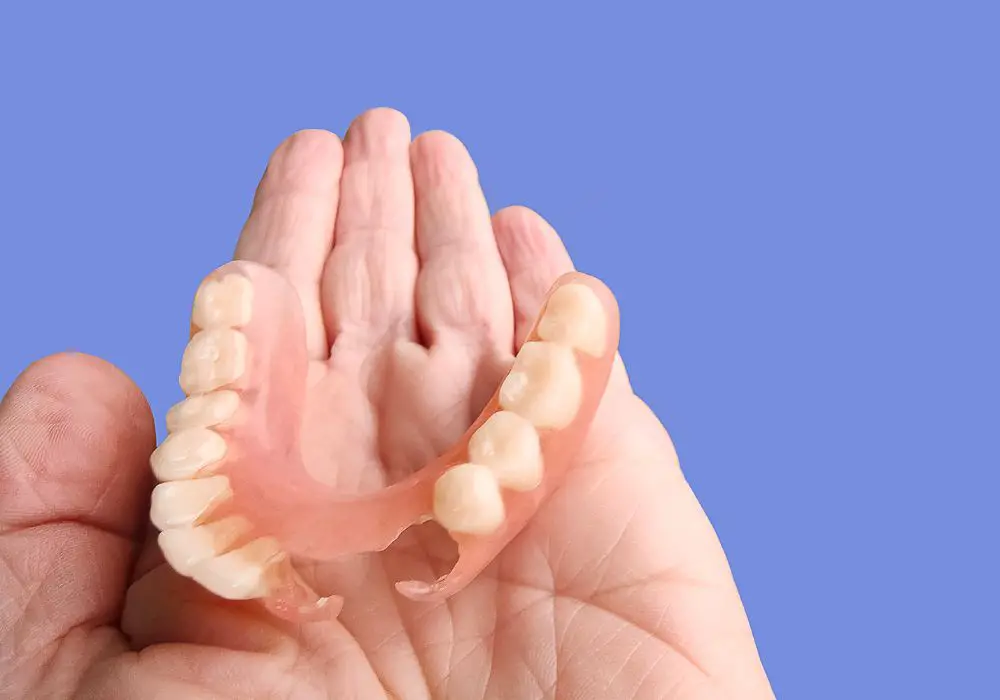
To avoid further damage to your dentures and keep them in good condition, there are a few things you can do.
Using Denture-Friendly Foods
Choosing the right foods can help prevent damage to your dentures. Here are some denture-friendly foods that can help:
- Soft foods: Soft foods like cooked vegetables, fruits, and pasta are easy to chew and less likely to damage your dentures.
- Dairy products: Dairy products like cheese, yogurt, and milk are good for your teeth and dentures. They contain calcium, which can help strengthen your teeth.
- Protein-rich foods: Protein-rich foods like fish, chicken, and beans are good for your overall health and can help keep your dentures in good condition.
Avoiding Certain Habits
There are also certain habits you should avoid to prevent damage to your dentures. Here are a few things to keep in mind:
- Avoid hard foods: Hard foods like nuts, seeds, and hard candy can damage your dentures. Try to avoid them or cut them into smaller pieces before eating.
- Don’t use your teeth as tools: Using your teeth to open packages or bottles can damage your dentures. Use scissors or a bottle opener instead.
- Be careful when brushing: Brushing your dentures with a hard-bristled brush or abrasive toothpaste can scratch them. Use a soft-bristled brush and a non-abrasive toothpaste instead.
- Don’t soak your dentures in hot water: Soaking your dentures in hot water can cause them to warp or lose their shape. Use warm water instead.
By following these tips, you can help prevent future damage to your dentures and keep them in good condition.
Frequently Asked Questions
Where can I find denture repair glue near me?
You can find denture repair glue at your local pharmacy or drugstore. Look for a denture repair kit, which will typically include the adhesive needed to glue a tooth back onto your dentures.
What is the best dental grade resin glue for dentures?
When it comes to repairing dentures, it’s important to use a dental grade resin glue that is specifically designed for this purpose. Some popular brands include Dentemp, Recapit, and Temparin.
Can I use super glue to fix my dentures?
No, you should never use super glue to fix your dentures. Super glue is not designed for use in the mouth and can be harmful if ingested. Additionally, it may not provide a strong enough bond to hold your dentures together.
Is it safe to glue a tooth back onto my dentures?
Yes, it is safe to glue a tooth back onto your dentures using a dental adhesive. However, it’s important to make sure you are using the correct type of adhesive and following the instructions carefully to avoid any damage to your dentures.
Can I use Gorilla Glue to repair my broken dentures?
No, you should never use Gorilla Glue or any other type of household adhesive to repair your dentures. These products are not designed for use in the mouth and can be harmful if ingested. Additionally, they may not provide a strong enough bond to hold your dentures together.
What are some denture repair kits that work well for fixing broken teeth?
Some denture repair kits that work well for fixing broken teeth include Dentemp, Recapit, and Temparin. These kits typically include the adhesive needed to glue a tooth back onto your dentures, as well as other tools and materials for repairing cracks and other damage.


